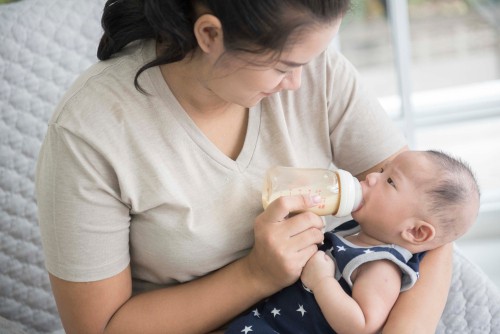
Pros and Cons of Hiring a Live-In Confinement Nanny
July 6, 2023
Confinement Nanny Tips for Newborn Hygiene and Diapering
July 31, 2023Managing Postpartum Depression with the Help of Confinement Nannies

Managing Postpartum Depression with the Help of Confinement Nannies
Managing Postpartum Depression with the Help of Confinement Nannies – Becoming a new mother is a joyous and transformative experience, but it can also bring about challenges, including postpartum depression (PPD).
Postpartum depression is a common mental health issue that affects some new mothers after childbirth.
However, seeking support and assistance during this delicate time can make a significant difference in managing PPD.
Confinement nannies are crucial in postpartum care, offering new mothers emotional support, guidance, and practical help.
In this article, we will explore the importance of understanding and managing postpartum depression with the compassionate support of confinement nannies.
Understanding Postpartum Depression (PPD)

It is essential to recognize the signs and symptoms of PPD to address it effectively.
Postpartum depression is characterized by sadness, anxiety, and exhaustion, which can interfere with a new mother’s ability to care for herself and her baby. It is essential to seek help and support if experiencing symptoms of PPD.
Confinement nannies play a vital role in providing the necessary support and care during this vulnerable time.
Confinement nannies are trained professionals who offer specialized care and assistance to new mothers during the postpartum period.
Recognizing Postpartum Depression
It is essential to recognize the symptoms of postpartum depression to address it promptly and effectively.
Common symptoms of postpartum depression include persistent sadness, loss of interest or pleasure in activities, changes in appetite, and difficulty sleeping.
Other signs of PPD may include feelings of worthlessness or guilt, difficulty bonding with the baby, and thoughts of self-harm.
Baby blues are common and usually resolve within a few weeks, while PPD is more persistent and requires professional intervention.
The Benefits of Hiring a Confinement Nanny

Hiring a confinement nanny can benefit new mothers, especially those experiencing postpartum depression.
Confinement nannies offer a listening ear and understanding, providing emotional support and companionship during the postpartum period.
Having a confinement nanny by their side can help new mothers feel less isolated and lonely, as they have someone to share their thoughts and concerns with.
Confinement nannies provide valuable assistance in caring for the baby, alleviating the stress and anxiety of new mothers.
Taking care of household responsibilities can be overwhelming for new mothers. Confinement nannies can help with light chores and meal preparation, allowing mothers to focus on their recovery and bonding with the baby.
Building a Strong Support System
- Creating a strong support system is crucial for new mothers, especially those facing postpartum depression.
- Involving family and friends in the postpartum journey can provide additional emotional and practical support.
- Open communication with loved ones about postpartum depression can help reduce stigma and create a more supportive environment.
- New mothers should feel comfortable contacting their support system for help and assistance whenever needed.
Self-Care for Postpartum Mothers

Prioritizing self-care and mental well-being is essential for new mothers, especially those with postpartum depression.
Ensuring sufficient rest can promote physical and mental recovery postpartum. Taking time for activities that bring joy and fulfillment can positively impact a mother’s mental health.
Table of Contents
Seeking Professional Help
Seeking professional therapy and counseling is crucial for managing postpartum depression effectively.
Creating a Positive Environment
Fostering a positive and supportive environment can aid in managing postpartum depression.
Accepting imperfections and setting realistic expectations can reduce feelings of pressure and overwhelm. Incorporating mindfulness and meditation practices can help manage stress and anxiety.
The Confinement Nanny’s Role in PPD Management

Confinement nannies play a significant role in managing postpartum depression. They create a safe, non-judgmental space for new mothers to share their thoughts and emotions.
Confidence nannies foster open discussions and help new mothers process their feelings and emotions. They provide valuable guidance and emotional support during the postpartum period.
Nurturing the Mother-Child Bond
Confinement nannies contribute to nurturing the mother-child bond.
Confinement nannies facilitate activities that promote bonding between the mother and baby.
- Promoting skin-to-skin contact and assisting with breastfeeding can enhance the bond between the mother and baby.
- Confinement nannies encourage sensory interactions, which can strengthen the connection between the mother and baby.
Transitioning to Self-Reliance
As the postpartum period progresses, new mothers gradually transition to self-reliance. Confinement nannies empower new mothers to gain confidence in their parenting abilities.
They provide training and guidance to new mothers, equipping them with essential parenting skills. By fostering independence, confinement nannies prepare new mothers for solo parenting.
Frequently Asked Questions (FAQs)

Addressing common questions about hiring confinement nannies and managing postpartum depression.
How Long Should I Hire a Confinement Nanny?
The duration of hiring a confinement nanny varies, but it is typically for the first few weeks or months after childbirth.
Can a Confinement Nanny Help with Baby Sleep Training?
Yes, confinement nannies can provide guidance and support in establishing healthy sleep routines for the baby.
Is Postpartum Depression Common, and Will It Go Away on Its Own?
Postpartum depression is relatively common, but it requires professional intervention for effective management.
What Should I Look for When Hiring a Confinement Nanny?
When hiring a confinement nanny, consider their experience, qualifications, and compatibility with your needs and preferences.
Managing Postpartum Depression with the Help of Confinement Nannies – Conclusion

Seeking compassionate support and assistance during this time is crucial for managing PPD effectively.
Confinement nannies play an essential role in providing emotional support, guidance, and practical help, allowing new mothers to focus on their recovery and bonding with their babies.
By embracing the role of confinement nannies in postpartum care and prioritizing mental health and well-being, new mothers can overcome postpartum depression and enjoy this special phase of motherhood to the fullest.
Ready to seek compassionate support in managing postpartum depression? Consider hiring a confinement nanny to assist you in this delicate journey.
Prioritize your well-being and embrace the joys of motherhood with the help of a caring and supportive confinement nanny! Contact us today!



